Unani Medicine and Aromatherapy
Aromatherapy is one of the fastest-growing therapies today, being accepted all over the world as a holistic therapeutic approach in complementary and alternative medicine (CAM) that deals with a person’s physical, mental, and emotional well-being on the basis of his or her responses to natural aromatic extracts or essential oils.
Various aromatherapy applications are becoming increasingly popular day by day and are being used in various settings including homes, spas, clinics, and hospitals. The use of aromatic compounds for healing purposes is closely linked with the Unani system of medicine. Want to know how they are connected? Continue reading till the end.
In this article, we’ll explore the link between Unani medicine and aromatherapy in the most possible brief manner. But before we get into how they are connected to each other, first, we’ll need to understand the basics of these two healing concepts. So, let’s get started.
Table of contents
-
What is Unani medicine?
-
What is aromatherapy?
-
The link between Unani medicine and aromatherapy
-
Aromatherapy in Unani medicine
-
Some commonly used essential oils and their potential uses in Unani medicine
What is Unani medicine?
Unani (Greek) medicine is a system that originated in Ancient Greece thousands of years ago but is now practiced primarily in India. The Unani system of medicine was documented in Kitab al-Qanun fi al-tibb (Canon of Medicine), a medical classic, by Sheikh Ibn Sīnā (Avicenna) (980-1037 AD) and in Kitāb al-ḥāwī, the “Comprehensive Book” by al-Rāzī (850-923 AD) in which he surveyed Greek, Syrian, and early Arabic medicine as well as some Indian medical knowledge.
It is the fourth most popular traditional and Complementary system of medicine practiced in India after the allopathy, Ayurveda, and Homeopathy systems.
Unani medicine is a complete system of medicine that meticulously deals with various diseases and states of health with a concept of holistic healing, meaning it considers the whole body, mind, and soul to prevent and manage health conditions.
The Unani system of medicine combines four modalities of treatment such as pharmacotherapy, diet therapy, surgery, and traditional regimental therapy. Diet therapy along with regimental therapy is considered one of the best approaches for the management of diseases and the promotion of health.
What is aromatherapy?
Aromatherapy is the practice of using aromas or scents, mostly in the form of essential oils or volatile plant oils for the promotion of mental and physical health. Aromatic substances used in aromatherapy are typically concentrated liquids or essences collected from many different types of cultivated or wild plants.
Natural essences can be extracted from different parts of the plant such as leaves, fruits, resins, roots, barks, and flowers. Besides, aromatic substances or natural plant essences can also be taken internally or ingested as medicines for treatment purposes. This concept is unique in the Unani medicine system, known as the use of Mufaheraat (exhilarant herbs) orally.
The link between Unani medicine and aromatherapy
Evidence from classical Unani books as well as pharmacopoeias suggests that aromatherapy has been used in Unani medicine for centuries. The concept of using aromatic substances for cure and comfort purposes is not new to Unani physicians. They employ aromatherapy in various forms as an effective healing practice to prevent and manage several health conditions.
Concept of aromatherapy in Unani medicine
The basic framework of the Unani system of medicine is based on deep scientific principles and philosophical insights, including the theory of four elements – earth, fire, water, and air. Admixtures of these four elements and their qualifies in specific ratios in the human body describe its temperament. In Unani medicine, it is known as mizaj.
Fundamentally, there are four types of temperament found in humans, commonly denoted as humors:
The Unani System of Medicine is a medical system that deals with the management of health and diseases. It provides preventive, promotive, curative and rehabilitative healthcare with holistic approach. The fundamental framework of this system is based on deep philosophical insights and scientific principles, including:
- the Empedoclean theory of four Elements i.e. Air, Water, Fire and Earth;
- four proximate Qualities (Kayfiyāt) i.e. Hot, Cold, Wet and Dry described by Pythagoras,
- and the Hippocratic theory of four Humours (Akhlā)
– Blood (Dam), Phlegm (Balgham), Yellow Bile (Ṣafrā’) and Black Bile (Sawdā’).Admixture of different Elements and their Qualities in specific ratio in a particular entity, whether living or non-living, denominates its Temperament (Mizāj).
Human Temperament is commonly denoted by the dominant Humour i.e.
- Choleric, in Unani medicine known as Safrawi, related to Yellow Bile (Ṣafrā’)
- Sanguine, in Unani medicine known as Damawi, related to Blood (Dam)
- Phlegmatic, in Unani medicine known as Balghami, related to Phlegm (Balgham),
- Melancholic, in Unani medicine known as Sawdawi, related to Black Bile (Sawdā’)
which can be correlated with the Temperament of Diet, Drugs, Environmental Factors, etc. as the entities of non-human Universe being made up directly of Elements are described in terms of Qualitative Temperament. Any disturbance in the equilibrium of humours causes disease, and therefore the treatment aims at restoring the equilibrium by giving factors (including drugs) of opposite temperament.
In addition, Unani System of Medicine believes that Vis Medicatrix naturae (Ṭabī‘at Mudabbira’-i Badan, the healing power of nature) is the supreme power, which controls all the physiological functions of the body, provides resistance against diseases and helps in healing naturally.
From UNANI SYSTEM OF MEDICINE, The Science of Health and Healing, 2013
Ministry of Health & Family Welfare, Government of India
Objectives of aromatherapy
- Perfume
- Antiseptic
- Exhilarant
- Skin enhancer
- Anti-depression
- Sedation and analgesic
Indications in aromatherapy
- Nervous system – headaches, depression, anxiety, insomnia, migraine, melancholia, epilepsy, nightmares, amnesia, facial palsy, apoplexy, hemiplegia, convulsions, etc.
- Female reproductive system – uterine prolapsed, difficult labor, hysteria, etc.
- Cardiorespiratory system – palpitations, diaphragmitis, syncope, lung abscess, terminal stage of tuberculosis, empyema, bronchiectasis, bronchitis, etc.
- Gastrointestinal system – hiccups, diarrhea, polydipsia, colitis, bulimia, anorexia, liver weakness, jaundice, etc.
- Infectious conditions – infected wounds, measles, plague, chicken pox, etc.
Therapeutic fragrances of the four temperaments
Like other medicines, essential oils or aromatic medicines have therapeutic applications and indications. But in the Unani system of medicine, certain aromas are, by their very natures, considered to be balancing, harmonizing, and therapeutic for certain temperaments.
Choleric temperament (Safrawi) – fiery tempers and overheated passions are cooled down by essential oils with cold and wet temperaments such as rose (gulab), camphor (kafoor), oud (aloeswood), and sandal (sandalwood). Some of these woods are burned as incense. Camphor is considered an anaphrodisiac which is specifically used for cooling down excess sexual passions.
Melancholic temperament (Sawdawi) – melancholic types of temperament need to soothe and calm the nerves and relax nervous anxiety and tension. The scents that are hot and wet temperaments are very beneficial. Some of the best among these are – lavender (ustukhudoos), vetiver, patchouli, sage, and nutmeg.
Phlegmatic temperament (Balghami) – balghami, being slow and sluggish, cold and moist, need stimulating and heating fragrances with a dry and hot temperament to wake them up and get them moving. Some of these fragrances include Frankincense (mur makki), cloves (qaranfal), and Cinnamon (darchini) as well as some evergreen scents such as juniper and pine.
Sanguine temperament (Damawi) – damawi, the sanguine temperament, being the most balanced is the most compatible and versatile with a wide range of variety of fragrances. Essential oils with a mildly stimulating, refreshingly clean scent with a dry and cold temperament work wonders. Some of these fragrances include Cardamom (illaichi), basil (rihan), and peppermint (pudina).
Some commonly used essential oils and their potential uses in Unani medicine
- Almond oil: oil extracted usually from bitter almonds. Action – nourishing, revitalizing, lubricant, and skin-softening agent. Uses – works wonders for dry and wrinkled hands. Very useful for any kind of skin irritation including eczema.
- Thyme oil: action – spasmolytic, expectorant, anti-tussive, and antiseptic. Uses – spasmodic pain, cough, and cold.
- Lavender oil: action – heals skin burns, acts as a relaxant, masks disagreeable odors. Uses – rheumatic pain, premenstrual cramps, and in ointments.
- Fennel: action – galactagogue, diuretic, stomachic, carminative, and vermicide. Uses – to stimulate lactation, indigestion, loss of appetite, flatulence, renal disorders, and to stimulate worm infestations.
- Cinnamon oil: action – anti-rheumatic, analgesic, digestive, carminative, rubefacient, and powerful germicide. Uses – indigestion, infection, arthritis, flatulence, and various skin disorders.
- Myrrh: action – anti-inflammatory, antibiotic, diuretic, stomachic, and wound healing properties. Uses – as a cytoprotective, mouthwash, in anti-ulcer treatment, and in perfumes.
Disclaimer: This content is created only for educational purposes and is not intended to be used as a substitute for a professional medical guideline. Consult a licensed healthcare provider before using any part of this content.
Reference:
Aromatherapy: The Practice of Aroma’s in Unani Medicine

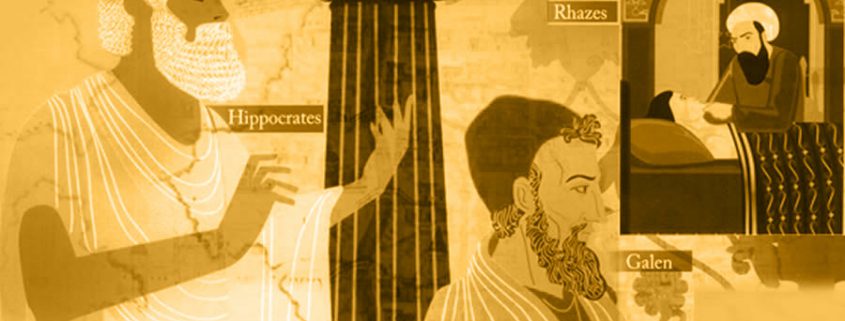
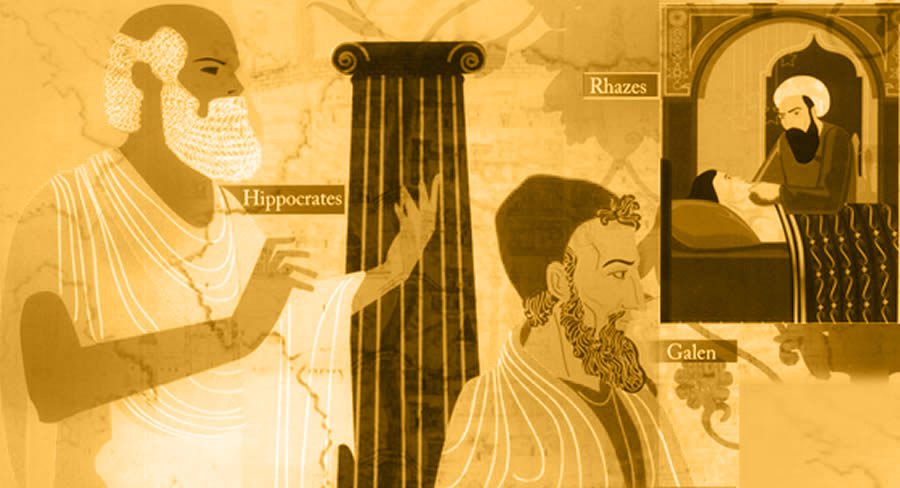
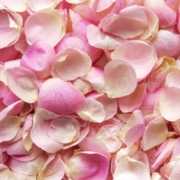
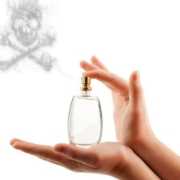


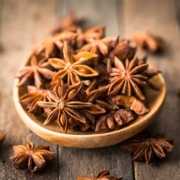

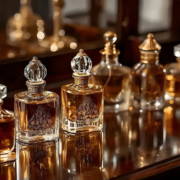
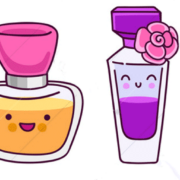













Leave a Reply
Want to join the discussion?Feel free to contribute!